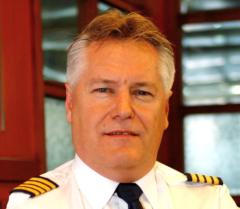Sep 28 • Learning & Study tips
Pilot Competency
How does an instructor determine the readiness of a student to take control of an aircraft filled with hundreds of people? How does he determine that a student has enough knowledge, common sense, cognitive, motor, communication skills, and emotional intelligence to function in this highly demanding and often dangerous and unforgiving environment?
I suggest that the "Four C's" is a good process to use for this assessment. The Four C's represent Competency, Consistency, Confidence, and Curiosity. While all the points discussed in the paper above are essential, for the instructor, they can be condensed into these four key items.
Competency - the Oxford Dictionary defines competency as "the ability to do something successfully or efficiently." The "or" in this statement raises some questions for instructors right from the start. While we definitely want our students to be successful, we also know the airline wants them to be efficient at the same time. Success can be observed for the most part, as everything we do in operating an aircraft has an end goal, and success can be measured by landing safely.
But what about efficiency? How does an instructor correctly determine efficiency without some external scale? An instructor spends most of his time working alone; he has no connection to those who have any data that defines efficient operations.
How does an airline determine the most efficient way to operate? It uses data collected from operations. It uses the data to modify training in hopes that the modification will result in better efficiencies in line operations. As we know, hope is a poor strategy, and this process is inherently time-consuming and inefficient.
The company expects a transfer of training, but we all know that there has never been a verifiable way to determine whether training truly transfers to line operations. We want that, we expect that, but we don't know that it happens. Why? Because we have not agreed on a way to validate the transfer. The technology exists to validate the transfer, but many in the industry are blocking the way to a safer, more efficient way of training pilots and operating aircraft.
The reason given in most cases is "the lowest common denominator." You know the guy. The one who does just enough to get by, to pass the test, who sometimes fumbles but ultimately passes the check ride. He maintains the minimum level of competence to keep his job.
He knows that his history, his lack of competency, is relegated to the rumour mill. He knows that his union will defend him if he should stumble again, because that's what they do.
That's the job of the union, and that's how they maintain their union status for their pilot group. Is it wrong? In some ways, no, but in many ways, yes! There are many benefits that unions provide to pilots. You have to see their paychecks to understand that.
However, unions and airlines have entered into relationships that are counterproductive in terms of competency. The idea of training a pilot until they get it right has gradually become part of the conversation between many instructors and their managers.
I understand the need to protect pilots, or any employee for that matter, against an unsupulous employer. I've been in positions of authority on both sides of this argument. I understand the challenges that come with making such decisions. Decisions that require leadership.
And that becomes the root cause or the result of asking the five whys. We are putting people in leadership roles who are managers, not leaders, which is strange because part of the competencies we require from our pilots is leadership. However, when we select them to lead the training department or the standards department, their authentic leadership is often suppressed and undermined.
1
5 comments
powered by

skool.com/the-global-life-4301
Upgrade your Self, Skills, Knowledge & Community and find actionable tools that help you stand out as a professional. By aviators for aviators.
Suggested communities
Powered by
